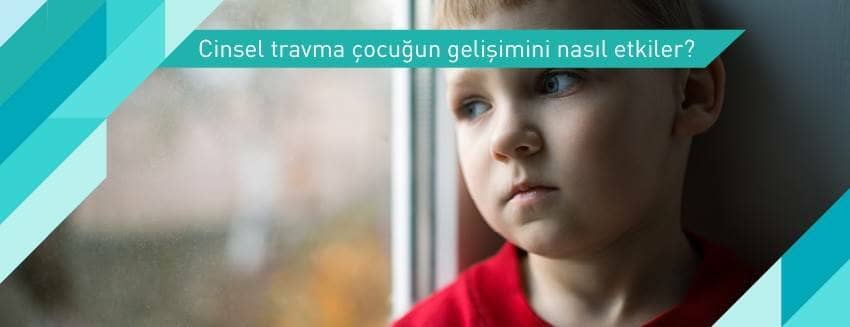
How does sexual trauma affect a child's development? How do we protect children from harassment and abuse? Üsküdar University NP Feneryolu Polyclinic Child and Adolescent Psychiatry Specialist Asst. Assoc. Prof. Dr. Başak AYIK explained...
Trauma can be defined as any event that affects the mental and spiritual life of an individual and has negative consequences in daily life. What distinguishes trauma from ordinary negative experiences is the threat to life or bodily integrity, violence or death. At the same time, at the moment of trauma, the person feels helpless by an irresistible force. This situation disables the person's coping mechanisms. Especially if the traumatized person is a child in need of protection.
Sexual trauma has more serious effects!
There is no doubt that all kinds of trauma result in negative effects on a person's psyche, but sexual trauma can have even more serious effects. Different effects can be seen both at the time of the trauma and much later on. Unfortunately, 25% of children in our country and in the world are exposed to various traumas.
What should be done to protect children from possible sexual assaults against themselves?
Traumatizing events can sometimes be perpetrated by strangers, and sometimes by acquaintances whom the family does not suspect at all.
- It is very important to inform children about protecting themselves.
- Both families, educators and society have important duties in this regard.
- Parents should always be vigilant and careful to avoid risky people and environments.
- Children should not be left alone in any risky environment until they reach a certain age.
- After a certain age, it is necessary to give information about the child's body. Information about the private parts of the body should be given and reminders about body immunity should be repeated.
- An attentive parent should recognize the effects of sexual abuse when their child is exposed to it.
- In addition to common reactions to trauma (such as behavioral changes, sleep-appetite disturbance, irritability, new-onset fears, regression in acquired skills, unwillingness to separate from parents), inappropriate sexual conversations and sexually explicit games may be seen in children in sexual trauma.
- In case of doubt, instead of talking to the child directly about this issue, support should be sought from a child and adolescent psychiatrist or child psychologist. Because sometimes families with high anxiety may be suspicious by misinterpreting the child's behavior, and they may harm them by trying to make the child talk about it with their increasing anxiety.
- Although the traumatic experiences of children who receive the right support at the appropriate time cannot be completely erased, their effects on their lives and mental health can be reduced to the extent possible.
